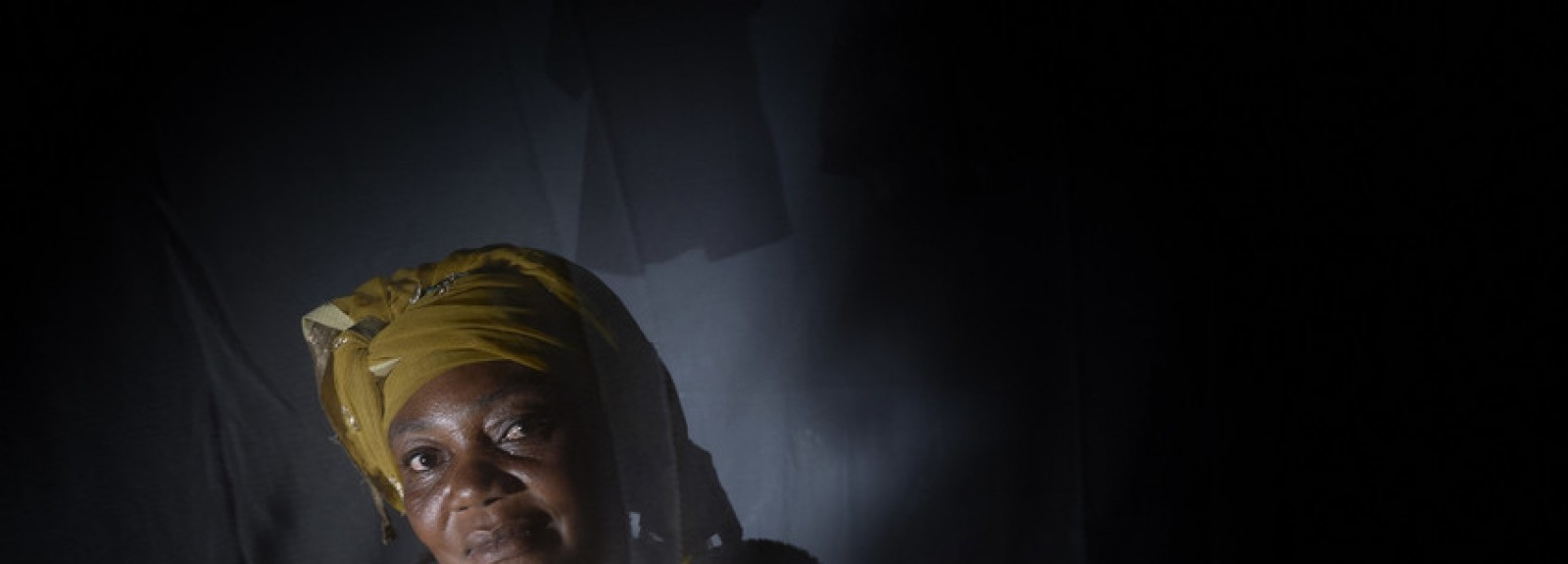Shalufa Josephine spends her days in constant vigilance. She lives in one of a cluster of small tin shacks by the side of the road in Goma, the largest city in Eastern Congo. Though Shalufa has witnessed more than her fair share of violence and instability here, it is not men or militias that she fears.
It is fever.
Children come and go from her home to the next. A couple of them are her flesh and blood, but she says all of them are “hers.” The care and love she feels for each of these kids as they run and play in the mud is clear with every pat on the head and word of warmth she gives. Their laughter brings her joy.
But two years ago, several children in the neighborhood suddenly fell ill with burning fever and began to die; there was barely time to mourn one before another was lost. She began feeling each of the children’s heads every day, every time they ran past, to make sure they wouldn’t be next. After awhile, health workers came by with new bed nets and reminded everyone to sleep under them to keep mosquitos away. They said malaria was surging, but the nets would help.
Holding her children close, Shalufa began to sleep a little more soundly, but the peace didn’t last. Within days, Shalufa’s fears came flooding back again with a single word: Ebola. News of a new outbreak of the highly contagious and deadly disease threw her into despair. There’s no type of net that can prevent Ebola, and it could be lurking anywhere.
“Wash your hands,” the health workers told her, wearing protective suits and masks. “Stay away from anyone who is sick or has a fever.”
Multiple sources of fear and fever
The DRC has the second highest number of malaria cases in the world. Though deaths from malaria among children have decreased by more than a third in the last 10 years, it is still the leading cause of death and illness in the country. Adding an outbreak of Ebola on top makes for a public health firestorm.
Both diseases bring fevers, headaches, vomiting and diarrhea. It is common for a person who is sick with Ebola to mistake their symptoms for malaria,& which does not spread from person to person, only to infect dozens of their friends and neighbors with the Ebola virus before seeking proper treatment. During the recent outbreak in DRC, two-thirds of those infected died.
For two years, health workers battled back the disease, with support from IMA World Health and other organizations. And for two years, Shalufa lived in fear of the fevers that threatened her and her children from multiple sources.
Finally, in June 2020, the Ebola outbreak in the DRC was declared over… just as the novel coronavirus pandemic arrived on the DRC’s doorstep — bringing with it a new type of fever.
Disease spreads quickly in the slums
“Wash your hands,” the health workers told Shalufa again from behind their masks, this time warning her about COVID-19. “Stay away from anyone who is sick or has a fever.”
But nobody in Shalufa’s neighborhood has running water in their homes.Hundreds of people share a common tap near the corner of a busy street, and there’s always a crowd there waiting to fill their jugs or wash their hands. Social distancing is almost impossible when there’s no grocery delivery,no telecommuting and no way to feed your family unless you leave your house to go to work.
So Shalufa just remains vigilant, resting her hands on her children’s heads and waiting for the inevitable day when one of them gets sick with a fever.
You can help Shalufa and her children
Being born in a slum should not mean an early death sentence.
Your gift today means that mothers like Shalufa and their children will have access to essential medical care, clean water, malaria nets and other basics that can save their lives and keep them healthy.
This holiday season, we need to raise $20,000 to reach communities like Shalufa’s, before it’s too late.
Please help us stop the spread of coronavirus and other diseases with your gift today.


